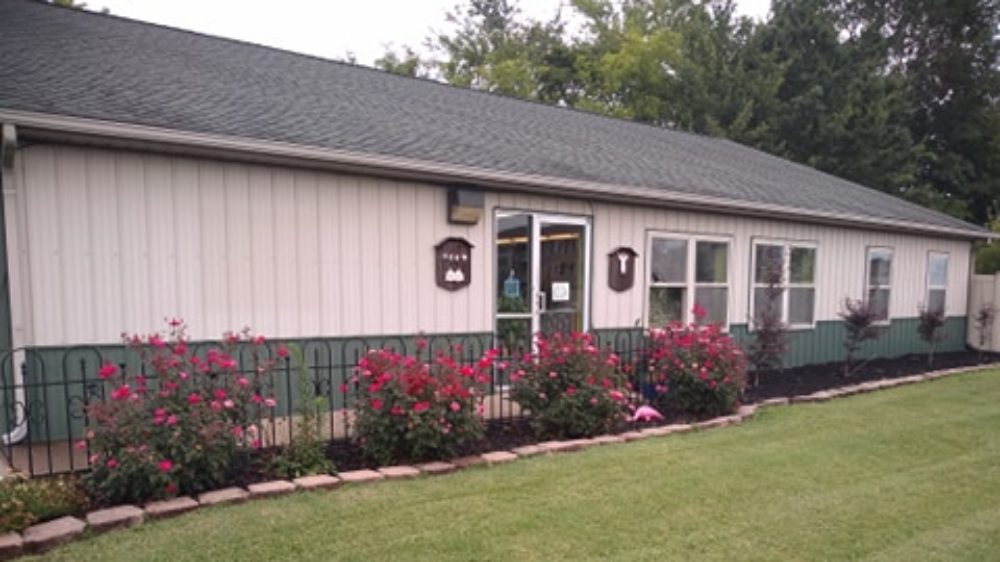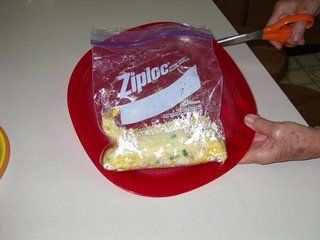
This is really a good article especially for new parents looking for childcare outside the home.
I would add a few extras.
Medication of any kind should be reported to your child’s teacher. If there is an accident of some kind, rescue squads need to know. Some parents are secretive about medication and only after several months will a teacher “discover” that the child is on a mind altering drug.
If a child is too anxious about going to school, two things to explore are 1, there is something going on at home the child just can’t bear to be away from, and 2, that someone in the childcare is not nice to him.
Always consider illness as an epidemic starter. Look at other children and ask, “Would I like to share a drinking cup after ‘that child?'” Then create a standard for your own family.
Behavior issues begin at home. In order to change a behavior, often it is the parents who have to change their own behaviors in order to change a child.
Most childcares run week by week. If parents don’t pay for vacation time, that income is not spendable and often a teacher will not get paid. It’s something to think about.
And one more thing: we were asked about our open door policy. Our front door remains unlocked because we are not a prison; we are a school. By order of the Fire Marshall’s office, we must keep our front door unlocked. That means parents can come through the door without having to wait. Every parent should have that right.
If a criminal wanted to gain entrance to the school, no matter how many doors and windows were open, they would do it.
Ten things every parent needs to know about day care
By Maria T. Olia
Day Care
Tuesday, July 25, 2006 –
Childcare is a real concern for parents of young children. “Trusting the care of your child to another person is huge” says Reed Donahue, co-director of Little Red Wagon Play School in Sudbury. Whether your child is enrolled in family or center- based day care, communication between the parent and the caregiver is key.
Frequent feedback is vital. High-quality daycare providers will use a variety of methods- bulletin-board postings, newsletters and formal conferences- to communicate with parents. One of the best ways parents can do is allow enough time to talk to the teacher at drop-off and pick-up. Drop-off is the time to tell the teacher that your child had a late night terror or that you started your infant on solids. At pick-up, the teacher will often share information about your child’s day. Roya Touran runs a family day care for 10 children in her Westwood home. Touran provides parents of infants and toddlers a daily “What I did today” form which notes how much was eaten, sleep patterns, and developmental milestones; such as rolling over and new words learned.
Heed your provider’s advice when dealing with your child’s separation anxiety. At the Beverly Hospital Childcare Center, Director Debbie Ago requests that parents visit the classroom with their child. Tangible reminders, a favorite toy, or a picture of the parent can help too. Donahue says that consistency is critical. She suggests that parent make a plan with their child. “For example, tell your child that you will give them 5 kisses and 5 hugs, and then you will leave. Lingering always makes it more difficult for both the parent and the child. I also always tell my parents that they can call after drop-off to hear how their child is doing.”
Be aware of early drop-off/late pick-up policies. Most day care providers will charge a fee for early drop-off or late pick-up. If parents are consistently early or late, they should consider changing their child’s day care schedule. Donahue says that her school is generally overstaffed. “If we have the room, we can accommodate a temporary change in a child’s day care schedule. This is life, things do happen.”
Respect sick-child policies. For licensed day care providers, Massachusetts has established guidelines for sick children, but day care providers know that for a slightly ill child, the decision whether or not to attend day care is a gray area-especially for working parents. Childcare centers will insist that children be fever-free for 24 hours and able to participate in all activities. However, for children that attend home-based day care, there is often more lee-way. Touran says, “I prefer that a sick child doesn’t come to day care, but I understand that parents have to work. If a child has a runny nose and wants to rest instead of play outside, I try to be flexible.”
Work with your day care provider to address any behavioral issues. Whether your child has a behavior issue or there is a problem with another child in your child’s day care, a parent’s first step should be to make an appointment to talk with your child’s teacher. “Often our teachers will work with the whole group and coach the kids through role-playing to empower the children and help teach empathy.” For a parent whose child is having a behavior problem, Donahue prefers to brainstorm with the parent about positive reinforcement and redirection strategies for the child. Ago says that accident logs are useful to teachers and parents in isolating behavior trends. “For a child that is a biter, we can look at the report regarding the victim, staffing, or the time of day of the occurrence. We can then make changes such as have one of our high school volunteers shadow that child until the child outgrows the problem.”
Know expectations for paying for vacation and sick days. You should expect to pay for childcare if your child is sick for a few days or misses days for a family vacation. After all, your day care provider has reserved a spot for your child. Family day care providers typically close for the day care provider’s vacation. Touran closes her day care for two weeks per year. Families have time to arrange back-up childcare – parents take vacation time, use short-term emergency day care at work, or get day care help from family members.
Share any food allergies or nutrition concerns. Day care providers are increasingly aware of the importance of healthy eating. At the Beverly Hospital Childcare Center, all meals and snacks are provided. Parents are encouraged to meet with the cook and review the day care’s menu. Touran provides all meals at her home day care too, and offers only water and milk as a beverage choice. At Little Red Wagon, children bring their own lunch, but parents are given guidelines regarding nutritious choices. Allergies are a hot topic in education. Day care providers can help manage a child’s food allergy by providing “safe snacks” (raisins, pretzels, etc.), enforcing a “no food sharing” rule, checking each child’s lunch for food allergens, and practicing good hygiene.
Understand inherent differences between day care centers and home-based centers. A home day care provider’s family cat or dog may be a wonderful learning opportunity- or a safety hazard. Some home day care providers may take the children on field trips- you will need to give written permission so that the day care may transport your child by car. And since your family day care provider is sharing her home with your child, you should be comfortable with her other family members as well.
Be familiar (and comfortable) with the provider’s discipline strategies. Children behave very differently in a classroom than at home. A common discipline difference between day care and home is the use of time-outs. Ago says “A time-out may be an appropriate discipline technique in the home, but we prefer to redirect a child and not use a time-out in the classroom.” Day care providers are often a great resource for parenting advice-especially for first-time parents. Some childcare centers help “parent the parent” through workshops with staff or local parenting experts.
Act quickly when something doesn’t feel right. Because very young children do not communicate well, a change in your child’s behavior is often a parent’s first clue that there may be a problem at a childcare. Donahue believes that anytime a parent has a concern is a good time to speak with their child’s caregiver. “A parent should never have to go to sleep with a concern about their child.” Childcare providers should have an “open door” policy where parents can visit at any time. Also, stay in touch with the other parents at your child’s day care- share your ideas and you will all have a better sense of what is going on in the classroom.
More info
The National Association for the Education of Young Children (NAEYC) has developed 10 standards for quality child care programs, preschools, or kindergartens. This list, based on the NAEYC standards, can be a starting point as you look for the best program for your child. For more information please visit http://www.rightchoiceforkids.org/.
Maria Olia is a freelance writer from Newton, who has warm memories of her four children’s nursery school days.












